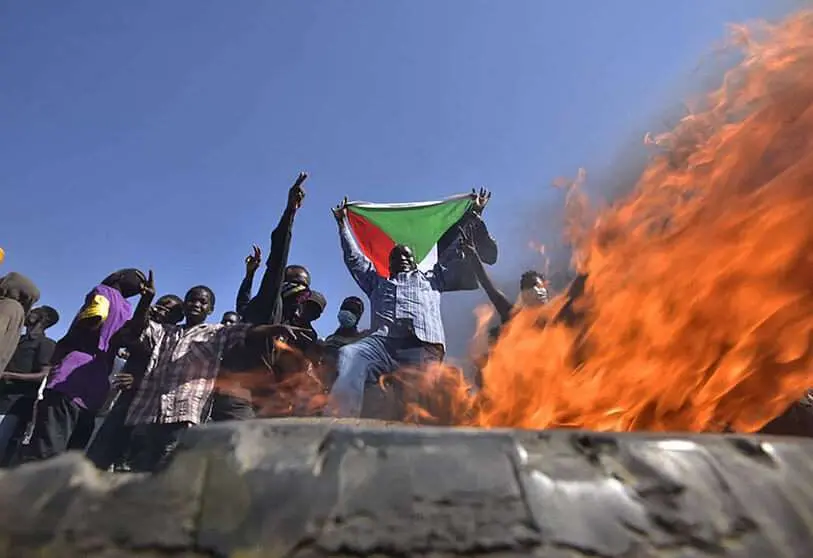At least 23 dead since outbreak of protests in Sudan

The Sudanese people have not left the streets since they took to the streets on 25 October, when General Abdel Fattah al-Burhan struck a coup against the political transition he shared with the civilian section of the government. Since then, at least 23 people have been killed in protests against the army. An institution that is reluctant to relinquish power after three decades of military dictatorship, paused after the overthrow of former president Omar Hassan al-Bashir in 2019.
The numbers of dead, wounded and displaced highlight the delicate situation in Sudan. The country is on the brink of a new war, adding to recent conflicts in the western region of Darfur and the 25-year civil war that ended South Sudan's independence. In addition, senior army officers staged a mock coup in September that failed to succeed. An amalgam of events has plunged the Sudanese nation into a chronic crisis.
The attempted coup two months ago was a trial balloon against democratic openness from the military wing still loyal to former President al-Bashir, who is imprisoned in Khartoum and awaiting extradition to the International Criminal Court (ICC) for genocide, war crimes and crimes against humanity. Friction between the Freedom and Change Forces (FCC), the broad coalition of parties, and the Transitional Military Council (TMC) has been turbulent since they joined forces in July 2019.

This complex power collusion between army leaders and civil society technocrats did not please either side, although the transition plan envisaged a handover of power to civil society after the elections scheduled for 2023. However, the ineffectiveness of political reforms in the face of the deep political, social and economic crisis left the door open for the army to subvert the roadmap.
Faced with the first failed coup, the army decided to retaliate by staging another coup, taking advantage of the general discontent at the end of October. The President of the Sovereign Council, Abdel Fattah al-Burhan, executed a slow-motion coup d'état by arresting four civilian ministers of the executive, including the chief of staff, Abdalla Hamdok, and dissolving the institutions. This action was almost unanimously condemned by the international community.
The hitherto prime minister, Abdalla Hamdok, has been under house arrest since 25 October. Alongside him are up to 100 administration officials belonging to the civilian section. Al-Burhan later said, in an apparent reversal, that the army maintained a stance in favour of unconditional dialogue with the various political parties until Sudan achieves some stability and security. However, he denounced the foreign influence to which some parties are exposed. The general also reconstituted the Sovereign Transitional Council, calling himself the new leader and surrounding himself with members of al-Bashir's old guard. This action was not supported by public opinion.

The Sudanese people took to the streets of Khartoum and several cities to protest again against the army, to demand the release of civilian leaders and to advocate for a transitional agreement that would give full powers to civil society. The authorities cracked down hard on the rallies and forced an information blackout by cutting mobile phone lines and blocking internet services, but failed to silence Sudanese society.
Local defence committees have organised protests that the security forces have cracked down hard on. Stationed on the country's main roads and present in the capital, Khartoum, the military contingent is showing its most hostile side against the Sudanese people who are demanding change.








